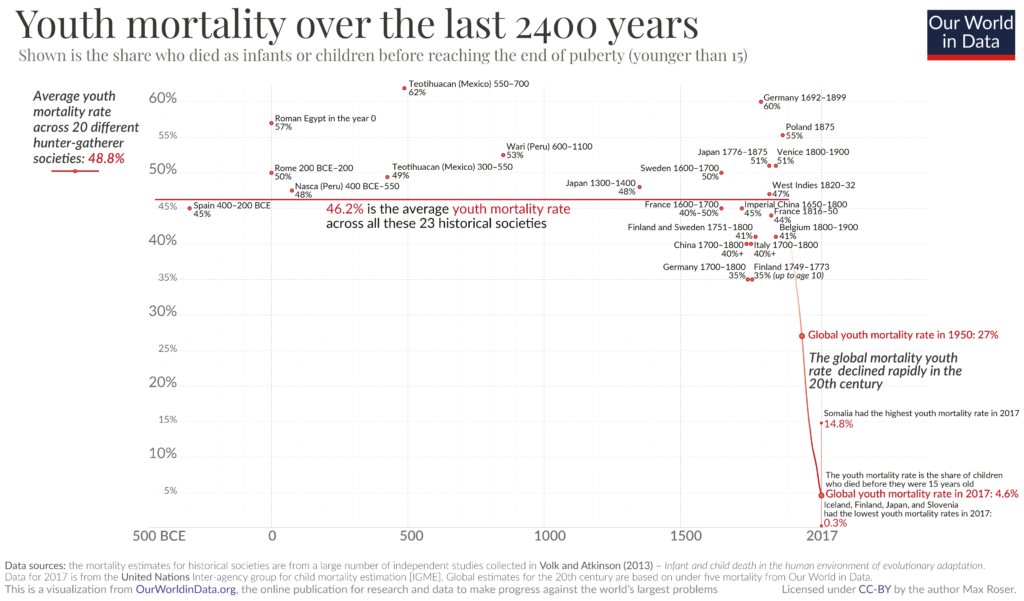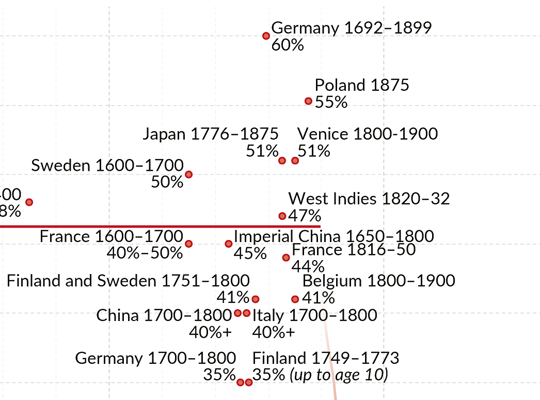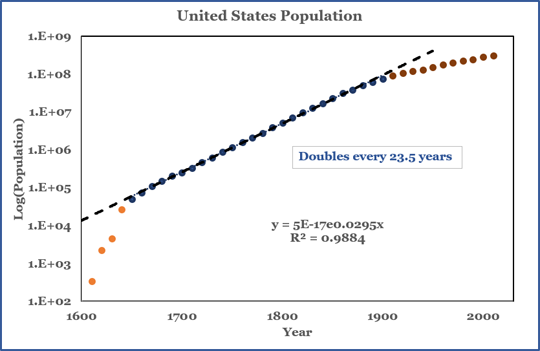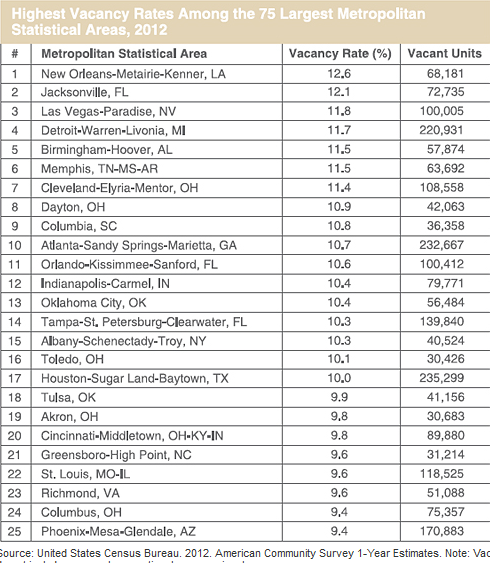In 1750, the British Parliament passed the Iron Act which encouraged the production of pig iron and iron bar in the colonies by removing the import duties to Britain. They sought to undercut the expensive importation of raw iron materials from foreign sources [Sweden, Russia]. Iron ore from mining contains various oxides of iron. The reduction of iron ore (removal of the oxygen) requires high temperatures and carbon which in turn required wood to make charcoal. The colonies had wood in abundance. [Coal did not replace wood as the heat and carbon source until later in 1700s]
Remember that in 1750 the colonies were part of the British nation, administered by an appointed Governor, with local laws passed by an elected legislature or by royal decree until such legislature had formed. Some colonies were directly administered by the crown, some by the individuals to whom the crown had granted the land. Disputes over the ownership of colonial land were frequent, and compounded by financial problems of some grantees. Before 1750, the British Parliament did not control local laws in the colonies.
In the larger scope of the British trade, the colonies sold raw materials to Britain, from which foreign trade was initiated. The colonies were captive states of the crown and not expected to engage in trade with foreign nations themselves. The colonies could produce competitive products within the greater British Empire, subject to import duties upon arrival in Britain. The British Parliament set those duties, thus becoming the political representation of British merchants. And therein lies the rub; British merchants wanted a greater share of the colonial profits.
Consistent with the demands of British merchants, the Iron Act forbade the colonies to build new facilities for the working of raw iron into iron rod, iron rolled stock, or steel in order to limit a crucial step in the manufacture of iron products in America. Thus, the British iron manufacturers were given exclusive use of less expensive raw materials, and both the British steel and iron manufacturers were supposedly shielded from any increased competition in America. Curiously, this part of the Act was largely ignored possibly because colonial governments were run by British officials with vested interests in American businesses.
The Iron Act marks the first serious action by the British Parliament to take political and financial control of the colonies from both the King and the local legislatures. This act also represents the first economic restriction on the colonies which, if enforced, was both a barrier to entry for startups and cap on the volumes of existing iron and steel manufacturers.
However, in the colonies, intellectual and political organizations were forming because communication was available through letters as well as printed newspapers and pamphlets. Benjamin Franklin was exceptionally active in many areas of public life in 1750. Having retired wealthy from active involvement in his printing business in 1747, he became involved in local and then state politics. He was elected to the Pennsylvania Assembly in 1751. Judging from his letters [0], he sought to knit like-minded individuals in seed projects including the Philosophical Society, Pennsylvania Hospital, the Academy of Philadelphia (later expanded to a college), and the development of the British colonial postal system. Thus, Franklin was directly involved in the building of the American communication system.
Within the expanding political environment fed by increased communication, Benjamin Franklin wrote an essay in 1751 to object to the Iron Act, building a scaffold of the economic and demographic reasoning based on the growth and strength of nations over generations. He developed the concept of multiple time scales over which economic and political actions mature. The essay was published in both America and Britain in several forms from 1754 to 1760. His reasoning found a home in many different political and intellectual circles including later economic philosophers like Adam Smith (An Inquiry into the Nature and Causes of the Wealth of Nations, 1776) and Thomas Malthus (An Essay on the Principle of Population, 1798).
In the essay, he tied such long-term growth of nations to the encouragement of early marriage, with increased birth rates. He asserted that the increase in population of a country is in proportion to the ease of supporting a family, that is, affording the cost of children. And reaching the pivot point in his argument, he suggested that Britain should encourage manufacturing in America because that would increase colonial population and the demand for British goods while making the whole of Britain stronger against a backdrop of conflict with France and Spain. He implied that implementing laws to promote the short-term interests of British merchants would weaken the long-term strength of the British nation. He said, “To distress, is to weaken, and weakening the Children, weakens the whole Family.”
Underlying this approach was the idea that young people act on their perception about the cost of children relative to their current and prospective income. If a laborer could easily save sufficient funds to leave employ and start his own business, he would view the marginal cost of children low, marry earlier, and have a larger family. Conversely, if a laborer had restricted wages typical of cities, he would view the marginal cost of children high, marry later, and have less children. If a laborer viewed the marginal cost of the first child too high, he may even be unlikely to marry.
Suppose that the marginal cost of children is the cost of adding one child to a family. Then each family would consider the marginal benefit of adding one child within the constraint of their income. The growth and strength of a nation is increased by reducing the marginal cost of children, or by increasing marginal benefit, usually through the ability of laborers to start their own businesses. Conversely, a nation is weakened by increasing the marginal cost of children, or by restricting wage levels to choke off the formation of small business.
In order to oppose British restrictions on the colonies, Benjamin Franklin used demographic arguments about the development of nations over generational time scales to show the British nation as a whole was diminished by constricting the growth of the colonies. Note that he ignored the incursion of the British Parliament into the laws of the colonies.
The actual essay by Benjamin Franklin on the increase of mankind, translated into a more general discussion of nations, provides a broader view of economic interests with a most curious twist at the end.
Observations Concerning the Increase of Mankind, Peopling of Countries, etc., Benjamin Franklin, 1751 [1]
1. Tables of the Proportion of Marriages to Births, of Deaths to Births, of Marriages to the Numbers of Inhabitants, &c. form’d on Observaions made upon the Bills of Mortality, Christnings, &c. of populous Cities, will not suit Countries; nor will Tables form’d on Observations made on full settled old Countries, as Europe, suit new Countries, as America.
The demographics of populous cities will not suit countries, nor will the demographics on fully settled old countries, as in Europe, suit new countries, as America.
2.For People increase in Proportion to the Number of Marriages [2], and that is greater in Proportion to the Ease and Convenience of supporting a Family. When Families can be easily supported, more Persons marry, and earlier in Life.
The increase in population of a country is in proportion to the ease of supporting a family, that is, affording the cost of children.
3.In Cities, where all Trades, Occupations and Offices are full, many delay marrying, till they can see how to bear the Charges of a Family; which Charges are greater in Cities, as Luxury is more common: many live single during Life, and continue Servants to Families, Journeymen to Trades, &c. hence Cities do not by natural Generation supply themselves with Inhabitants; the Deaths are more than the Births.
Cities limit the growth of population because of the inequality of wealth and the dearth of opportunity accompanied with the higher cost of children.
4.In Countries full settled, the Case must be nearly the same; all Lands being occupied and improved to the Heighth: those who cannot get Land, must Labour for others that have it; when Labourers are plenty, their Wages will be low; by low Wages a Family is supported with Difficulty; this Difficulty deters many from Marriage, who therefore long continue Servants and single. Only as the Cities take Supplies of People from the Country, and thereby make a little more Room in the Country; Marriage is a little more incourag’d there, and the Births exceed the Deaths.
Fully settled countries limit the growth of population by limiting of availability of land and, therefore, independent employment. This leads to an excess of laborers, with correspondingly low wages, who cannot afford children. Migration to the cities can provide some limited growth in the rural areas.
5.Europe is generally full settled with Husbandmen, Manufacturers, &c. and therefore cannot now much increase in People: America is chiefly occupied by Indians, who subsist mostly by Hunting. But as the Hunter, of all Men, requires the greatest Quantity of Land from whence to draw his Subsistence, (the Husbandman subsisting on much less, the Gardner on still less, and the Manufacturer requiring least of all), The Europeans found America as fully settled as it well could be by Hunters; yet these having large Tracks, were easily prevail’d on to part with Portions of Territory to the new Comers, who did not much interfere with the Natives in Hunting, and furnish’d them with many Things they wanted.
Europe is fully settled. America, while settled by Indians engaged in hunting, has room for farmers and manufacturers providing a symbiotic relationship.
6.Land being thus plenty in America, and so cheap as that a labouring Man, that understands Husbandry, can in a short Time save Money enough to purchase a Piece of new Land sufficient for a Plantation, whereon he may subsist a Family; such are not afraid to marry; for if they even look far enough forward to consider how their Children when grown up are to be provided for, they see that more Land is to be had at Rates equally easy, all Circumstances considered.
America has plentiful and inexpensive land [3] allowing a laborer to save enough to purchase land sufficient for a farm and provide for the cost of children. Further, this activity can proceed for generations.
7.Hence Marriages in America are more general, and more generally early, than in Europe. And if it is reckoned there, that there is but one Marriage per Annum among 100 Persons, perhaps we may here reckon two; and if in Europe they have but 4 Births to a Marriage (many of their Marriages being late) we may here reckon 8, of which if one half grow up, and our Marriages are made, reckoning one with another at 20 Years of Age, our People must at least be doubled every 20 Years.
Because of the availability of land, the population in America should double every 20 years.[4,5]
8.But notwithstanding this Increase, so vast is the Territory of North-America, that it will require many Ages to settle it fully; and till it is fully settled, Labour will never be cheap here, where no Man continues long a Labourer for others, but gets a Plantation of his own, no Man continues long a Journeyman to a Trade, but goes among those new Settlers, and sets up for himself, &c. Hence Labour is no cheaper now, in Pennsylvania, than it was 30 Years ago, tho’ so many Thousand labouring People have been imported.
America is so large that its settlement will take many generations. As laborers progress to independence, the cost of labor is not reduced even with the import of many laborers.
9.The Danger therefore of these Colonies interfering with their Mother Country in Trades that depend on Labour, Manufactures, &c. is too remote to require the Attention of Great-Britain.
The American colonies, whose cost of labor will remain high, will not interfere with manufacturers in Great Britain, with the lower labor costs of a settled country.
10.But in Proportion to the Increase of the Colonies, a vast Demand is growing for British Manufactures, a glorious Market wholly in the Power of Britain, in which Foreigners cannot interfere, which will increase in a short Time even beyond her Power of supplying, tho’ her whole Trade should be to her Colonies: Therefore Britain should not too much restrain Manufactures in her Colonies. A wise and good Mother will not do it. To distress, is to weaken, and weakening the Children, weakens the whole Family.
Britain should encourage manufacturing in the colonies because that will increase the demand for British manufactures, and promote the economic growth of both.
11.Besides if the Manufactures of Britain (by Reason of the American Demands) should rise too high in Price, Foreigners who can sell cheaper will drive her Merchants out of Foreign Markets; Foreign Manufactures will thereby be encouraged and increased, and consequently foreign Nations, perhaps her Rivals in Power, grow more populous and more powerful; while her own Colonies, kept too low, are unable to assist her, or add to her Strength.
If the price of British manufactured goods is driven higher by American demands, foreign manufacturers can undercut their market. Encouraging American manufacturers can cap the price increases, to the benefit of the entire British nation.
12.’Tis an ill-grounded Opinion that by the Labour of Slaves, America may possibly vie in Cheapness of Manufactures with Britain. The Labour of Slaves can never be so cheap here as the Labour of working Men is in Britain. Any one may compute it. Interest of Money is in the Colonies from 6 to 10 per Cent. Slaves one with another cost £30 Sterling per Head. Reckon then the Interest of the first Purchase of a Slave, the Insurance or Risque on his Life, his Cloathing and Diet, Expences in his Sickness and Loss of Time, Loss by his Neglect of Business (Neglect is natural to the Man who is not to be benefited by his own Care or Diligence), Expence of a Driver to keep him at Work, and his Pilfering from Time to Time, almost every Slave being by Nature a Thief, and compare the whole Amount with the Wages of a Manufacturer of Iron or Wool in England, you will see that Labour is much cheaper there than it ever can be by Negroes here. Why then will Americans purchase Slaves? Because Slaves may be kept as long as a Man pleases, or has Occasion for their Labour; while hired Men are continually leaving their Master (often in the midst of his Business,) and setting up for themselves.
The cost of slave labor in America is greater than the cost of the working man’s labor in Britain because the slave cost is augmented by interest on investment of 6 to 10 percent, by the upkeep of the slave, and by his poorer performance. However, in America, slave labor can reduce the disruption of business caused by high turnover.
13.As the Increase of People depends on the Encouragement of Marriages, the following Things must diminish a Nation, viz. 1.The being conquered; for the Conquerors will engross as many Offices, and exact as much Tribute or Profit on the Labour of the conquered, as will maintain them in their new Establishment, and this diminishing the Subsistence of the Natives discourages their Marriages, and so gradually diminishes them, while the Foreigners increase. 2. Loss of Territory. Thus the Britons being driven into Wales, and crowded together in a barren Country insufficient to support such great Numbers, diminished ’till the People bore a Proportion to the Produce, while the Saxons increas’d on their abandoned Lands; ’till the Island became full of English. And were the English now driven into Wales by some foreign Nation, there would in a few Years be no more Englishmen in Britain, than there are now People in Wales. 3. Loss of Trade. Manufactures exported, draw Subsistence from Foreign Countries for Numbers; who are thereby enabled to marry and raise Families. If the Nation be deprived of any Branch of Trade, and no new Employment is found for the People occupy’d in that Branch, it will also be soon deprived of so many People. 4. Loss of Food. Suppose a Nation has a Fishery, which not only employs great Numbers, but makes the Food and Subsistence of the People cheaper; If another Nation becomes Master of the Seas, and prevents the Fishery, the People will diminish in Proportion as the Loss of Employ, and Dearness of Provision, makes it more difficult to subsist a Family. 5. Bad Government and insecure Property. People not only leave such a Country, and settling Abroad incorporate with other Nations, lose their native Language, and become Foreigners; but the Industry of those that remain being discourag’d, the Quantity of Subsistence in the Country is lessen’d, and the Support of a Family becomes more difficult. So heavy Taxes tend to diminish a People. 6. The Introduction of Slaves. The Negroes brought into the English Sugar Islands, have greatly diminish’d the Whites there; the Poor are by this Means depriv’d of Employment, while a few Families acquire vast Estates; which they spend on Foreign Luxuries, and educating their Children in the Habit of those Luxuries; the same Income is needed for the Support of one that might have maintain’d 100. The Whites who have Slaves, not labouring, are enfeebled, and therefore not so generally prolific; the Slaves being work’d too hard, and ill fed, their Constitutions are broken, and the Deaths among them are more than the Births; so that a continual Supply is needed from Africa. The Northern Colonies having few Slaves increase in Whites. Slaves also pejorate the Families that use them; the white Children become proud, disgusted with Labour, and being educated in Idleness, are rendered unfit to get a Living by Industry.
Because the increase of people depends on the cost of children, a nation [6] may be diminished by any action that increases the marginal cost of children:
1.Being conquered, because the subsistence level of conquered people is reduced.
2.Loss of territory, because a people driven into a smaller land area will necessarily have a lower subsistence level.
3.Loss of trade, because the loss of employment in those trades, and the corresponding reduction of income if no new trade is found, will increase the marginal cost of children proportionally
4.Loss of food, especially sea food, to foreign control because not only of the loss of employment, but also of the reduction of subsistence level.
5.Bad government and insecure property, because heavy taxes diminish a people by both reducing the availability of productive assets [e.g. land], causing emigration, and discouraging the remaining people thus increasing the marginal cost of children.
6.The introduction of slaves, because slaves reduce the availability of employment to the people, thereby limiting the flow of laborers into business ownership and independent income sufficient to incur the cost of children. Slaves also reduce the generational viability continued family ownership of the business by creating a psychological dependence in their children making them unfit for management.
14.Hence the Prince that acquires new Territory, if he finds it vacant, or removes the Natives to give his own People Room; the Legislator that makes effectual Laws for promoting of Trade, increasing Employment, improving Land by more or better Tillage; providing more Food by Fisheries; securing Property, &c. and the Man that invents new Trades, Arts or Manufactures, or new Improvements in Husbandry, may be properly called Fathers of their Nation, as they are the Cause of the Generation of Multitudes, by the Encouragement they afford to Marriage.
Hence, a nation may be increased by executive driven acquisition of territory, by legislation to promote trade, increase employment, improve the productivity of assets, increasing food from fisheries, and secure property, and by the invention of trades, arts, and manufactures. Men engaged in such actions can be called the fathers of their nation by encouraging an increase in the generation of children.
15.As to Privileges granted to the married, (such as the Jus trium Liberorum among the Romans), they may hasten the filling of a Country that has been thinned by War or Pestilence, or that has otherwise vacant Territory; but cannot increase a People beyond the Means provided for their Subsistence.
The population of a nation may be restored from the effects of war or disease by offering special privileges to the married, yet not beyond the subsistence level.
16.Foreign Luxuries and needless Manufactures imported and used in a Nation, do, by the same Reasoning, increase the People of the Nation that furnishes them, and diminish the People of the Nation that uses them. Laws therefore that prevent such Importations, and on the contrary promote the Exportation of Manufactures to be consumed in Foreign Countries, may be called (with Respect to the People that make them) generative Laws, as by increasing Subsistence they encourage Marriage. Such Laws likewise strengthen a Country, doubly, by increasing its own People and diminishing its Neighbours.
The importation of foreign luxuries and needless goods diminish the people of the nation, while increasing the people of the foreign nation. Laws that prevent such importation, while promoting exportation to foreign nations, called generative laws, increase subsistence, reduce the marginal cost of children, and increase the strength of the nation.
17.Some European Nations prudently refuse to consume the Manufactures of East-India. They should likewise forbid them to their Colonies; for the Gain to the Merchant, is not to be compar’d with the Loss by this Means of People to the Nation.
Some European Countries refuse to import products from East-India, and forbid them to their colonies, correctly placing the strength of the nation before the profit of the merchant.
18.Home Luxury in the Great, increases the Nation’s Manufacturers employ’d by it, who are many, and only tends to diminish the Families that indulge in it, who are few. The greater the common fashionable Expence of any Rank of People, the more cautious they are of Marriage. Therefore Luxury should never be suffer’d to become common.
An increase in the use of luxury goods by a people decreases the likelihood of marriage, weakening the nation and should not be allowed.
19.The great Increase of Offspring in particular Families, is not always owing to greater Fecundity of Nature, but sometimes to Examples of Industry in the Heads, and industrious Education; by which the Children are enabled to provide better for themselves, and their marrying early, is encouraged from the Prospect of good Subsistence.
Within particular families, children can be taught to provide better for themselves, make better use good subsistence, and have larger families themselves.
20.If there be a Sect therefore, in our Nation, that regard Frugality and Industry as religious Duties, and educate their Children therein, more than others commonly do; such Sect must consequently increase more by natural Generation, than any other Sect in Britain.
Sects within a nation that practice frugality and industry, and so educate their children, will increase more than other Sects.
21.The Importation of Foreigners into a Country that has as many Inhabitants as the present Employments and Provisions for Subsistence will bear; will be in the End no Increase of People; unless the New Comers have more Industry and Frugality than the Natives, and then they will provide more Subsistence, and increase in the Country; but they will gradually eat the Natives out. Nor is it necessary to bring in Foreigners to fill up any occasional Vacancy in a Country; for such Vacancy (if the Laws are good) will soon be filled by natural Generation. Who can now find the Vacancy made in Sweden, France or other Warlike Nations, by the Plague of Heroism 40 Years ago; in France, by the Expulsion of the Protestants; in England, by the Settlement of her Colonies; or in Guinea, by 100 Years Exportation of Slaves, that has blacken’d half America? The thinness of Inhabitants in Spain is owing to National Pride and Idleness, and other Causes, rather than to the Expulsion of the Moors, or to the making of new Settlements.
The importation of foreign labor into a nation with limited subsistence will decrease the people unless the new comers practice greater frugality and industry. Nations diminish themselves by war, religious persecution, colonial expansion, the exportation of slaves, or the glorification of idleness.
22.There is in short, no Bound to the prolific Nature of Plants or Animals, but what is made by their crowding and interfering with each others Means of Subsistence. Was the Face of the Earth vacant of other Plants, it might be gradually sowed and overspread with one Kind only; as, for Instance, with Fennel; and were it empty of other Inhabitants, it might in a few Ages be replenish’d from one Nation only; as, for Instance, with Englishmen. Thus there are suppos’d to be now upwards of One Million English Souls in North-America, (tho’ ’tis thought scarce 80,000 have been brought over Sea) and yet perhaps there is not one the fewer in Britain, but rather many more, on Account of the Employment the Colonies afford to Manufacturers at Home. This Million doubling, suppose but once in 25 Years, will in another Century be more than the People of England, and the greatest Number of Englishmen will be on this Side the Water. What an Accession of Power to the British Empire by Sea as well as Land! What Increase of Trade and Navigation! What Numbers of Ships and Seamen! We have been here but little more than 100 Years, and yet the Force of our Privateers in the late War, united, was greater, both in Men and Guns, than that of the whole British Navy in Queen Elizabeth’s Time. How important an Affair then to Britain, is the present Treaty for settling the Bounds between her Colonies and the French, and how careful should she be to secure Room enough, since on the Room depends so much the Increase of her People?
The increase in a nation on Earth depends only on their crowding and interference with their means of subsistence. Britain has increased the means of subsistence through domination of the seas yielding increased trade and land. Britain should be careful with present treaty with France to establish a well-defined increase in land.
23.In fine, A Nation well regulated is like a Polypus; take away a Limb, its Place is soon supply’d; cut it in two, and each deficient Part shall speedily grow out of the Part remaining. Thus if you have Room and Subsistence enough, as you may by dividing, make ten Polypes out of one, you may of one make ten Nations, equally populous and powerful; or rather, increase a Nation ten fold in Numbers and Strength.And since Detachments of English from Britain sent to America, will have their Places at Home so soon supply’d and increase so largely here; why should the Palatine Boors be suffered to swarm into our Settlements, and by herding together establish their Language and Manners to the Exclusion of ours? Why should Pennsylvania, founded by the English, become a Colony of Aliens, who will shortly be so numerous as to Germanize us instead of our Anglifying them, and will never adopt our Language or Customs, any more than they can acquire our Complexion.
A nation with sufficient subsistence to grow can expand itself, or, by splitting into multiple parts, grow each into a separate nation. If nation and a people have sufficient subsistence to grow, why should they allow an influx of a foreign people who likely will seek to establish their own language, culture, and nation?
24.Which leads me to add one Remark: That the Number of purely white People in the World is proportionably very small. All Africa is black or tawny. Asia chiefly tawny. America (exclusive of the new Comers) wholly so. And in Europe, the Spaniards, Italians, French, Russians and Swedes, are generally of what we call a swarthy Complexion; as are the Germans also, the Saxons only excepted, who with the English, make the principal Body of White People on the Face of the Earth. I could wish their Numbers were increased. And while we are, as I may call it, Scouring our Planet, by clearing America of Woods, and so making this Side of our Globe reflect a brighter Light to the Eyes of Inhabitants in Mars or Venus, why should we in the Sight of Superior Beings, darken its People? why increase the Sons of Africa, by Planting them in America, where we have so fair an Opportunity, by excluding all Blacks and Tawneys, of increasing the lovely White and Red? But perhaps I am partial to the Complexion of my Country, for such Kind of Partiality is natural to Mankind.
Every people within Mankind are naturally partial to those who are similar to themselves. Because the number of people similar to me is small, Anglo-Saxons with the same cultural heritage, why should I encourage an influx of dissimilar people?
At this point, Franklin woke the dragon of racism. He was advised to remove the last two paragraphs, and they were omitted in some publications of his essay. Later his political opponents used these two paragraphs to attack him. However, if personal preference is an embedded feature of human behavior, then overt or covert attempts to integrate by government edict will discourage the people so imposed leading a decreased marginal benefit of children. The bad government so imposed will weaken the nation.
In order to study the impact of embedded personal preferences on segregation, Thomas Schelling, an American economist at Harvard, developed an agent based model of segregation [7] with a surprising result.
Schelling’s Model of Segregation
In his model of segregation, Schelling first discussed the many reasons that segregation of residence occurs, with the resulting statistical confounding of any analysis of the issue. He listed,
“People get separated along many lines and in many ways. There is segregation by sex, age, income, language, religion, color, taste, comparative advantage and the accidents of historical location. Some segregation results from the practices of organizations; some is deliberately organized; and some results from the interplay of individual choices that discriminate. Some of it results from specialized communication systems, like different languages. And some segregation is a corollary
of other modes of segregation: residence is correlated with job location and transport.”
Schelling was particularly interested in American urban areas, where the demographic distribution of people is so segregated that the choice of residence is between two extremes, white and non-white. By viewing the movement of people over time using decennial maps, he noted,
“it is nearly impossible to find an area that, if integrated to [at least 75%], will remain integrated long enough for a man to get his house paid for or his children through school.”
In an effort to distinguish between personal preference and other causes of segregation, he built an agent-based model in which there are
1. two types of individuals
2. individual agents where assigned a probability of preferring neighbors similar to themselves, possibly depending on individual type
3. a random residence pattern of large number of individuals as a starting point
4. the ability of each individual to move.
He found that relatively low preferences (~30%) lead to a tipping point where neighborhoods segregate, even when any isolated individual would seem to prefer not moving, a collective behavior. Moreover, the process is dynamic and involves economic speculation as well as personal preference; people move to avoid the financial loss of moving too late.
Remember Benjamin Franklin’s statement that every people within Mankind are naturally partial to those who are similar to themselves, and that the growth and strength of the nation depends on marginal cost of children along with the perceived marginal benefit of children. Schelling’s model using those assumptions describes the segregation of American urban areas, even before invoking other coercive factors.
From these observations, we can conclude that an attempt by government to force the integration of housing will fail over a generation time scale, because the marginal cost of children will be increased to the point of stifling the creation of individual businesses through the dynamic turnover of laborers. And the use of forced integration in urban areas will have the added burdens of segregation by inequality of income and an excess of laborers.
A visualization of Schelling’s model has been built by Frank McCown, Harding University for use in education [8]. Playing with and modifying the model is the best way to discover the complexity of the issue. This implementation is used in several universities as a starting point to the discussion of personal preference in segregation.
Suppose we start with numbers typical of many urban areas in America: 50% white, 50% non-white, 10% vacancy rate [9], and 2500 housing units. At 25% individual preference, the segregated communities are very local, small, and uniformly spread throughout the city. At 30% individual preference, the segregated communities have tipped over into larger, non-uniformly distributed, enclaves.
Initial random spread of housing:
25% individual preference
30% individual preference
[0] National Archives, https://founders.archives.gov/
[1] https://founders.archives.gov/?q=%20Author%3A%22Franklin%2C%20Benjamin%22&s=1111311111&r=336
[2] Franklin assumes that marriage leads to an increase of children, easy availability of assets (e.g., land) to produce income leads to earlier marriage, and early marriage leads to proportionally more children causing an increase in the population of people.
[3] Franklin uses land as the major asset driving the turnover of labor because farming was the most likely occupation for a laborer to leave employment and create the production of increased, independent income in this time period.
[4] Please note that embedded in this discussion was Franklin’s estimate that the mortality rate for children before reaching puberty (usually 15 years old) was 50%. While the historical mortality rate varied by physical environment and culture, the average until the 1900s was about 46.2%.
https://ourworldindata.org/uploads/2021/03/Youth-mortality-rates-over-last-two-millennia.png
Using the average mortality rate of 46.2% rather than 50% yields a doubling time of 21.6 years excluding immigration.
[5] The actual doubling time of the population of the United States during its major growth period from 1650-1900 was 23.5 years, augmented by immigration. Note that the population ceases to grow at the same doubling rate exactly when the mortality rate of children starts to decline.
[6] Franklin frequently uses ‘people’ and ‘nation’ to mean not only a geographical unit but also specific racial and cultural groups, including references to Britons, Saxons, Whites, Indians, Germans, French, Italians, Africans, Russians, Swedes, and Asians.
[7] Thomas C. Schelling (1971): Dynamic models of segregation, The Journal of Mathematical Sociology, 1:2, 143-186
[9] https://www.huduser.gov/portal/periodicals/em/winter14/highlight1.html








